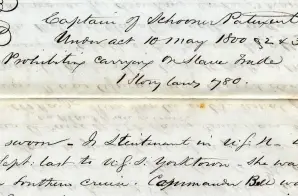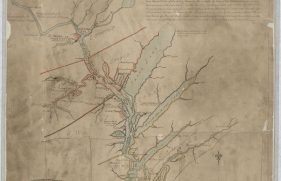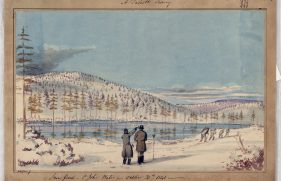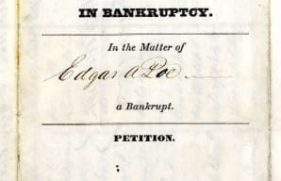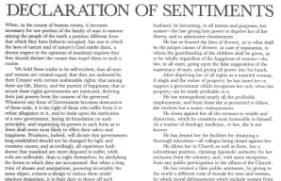The Schooner Patuxent left the port of New York for the coast of Africa. While off Cape Mount, she was seized by the U.S.S. Yorktown. The Yorktown was part of the “African Squadron” commissioned to help curtail the slave trade.
The crew of the Patuxent was arrested for participating in the illegal slave trade, in violation of the Slave Trade Act of 1800. In this deposition, William Chandler of the U.S.S. Yorktown stated his belief the ship was rigged and carried extra supplies used to transport slaves. It comes from the case United States v. Nathaniel T. Davis.
The Patuxent had supplies of rice and water large enough to feed approximately 250 slaves. The ship also contained a large quantity of pre-cut planking, which could possibly have been used to build a temporary slave deck. In the court case, the prosecution’s other main piece of evidence was that Captain Nathaniel T. Davis had taken on a short-term passenger named Captain Theodore Canot, who held a reputation as a slave trader.
The defense attorney claimed that Davis’s rice cargo was for trading up and down the African Coast and that the planking was to be delivered for a building project. Davis admitted to transporting Captain Canot, but many people testified that it was general knowledge Canot had given up the slave trade. The defense had several people testify on Davis’s behalf as to the quality of his character and the legitimacy of his cargo. The jury returned a unanimous verdict of not guilty.
